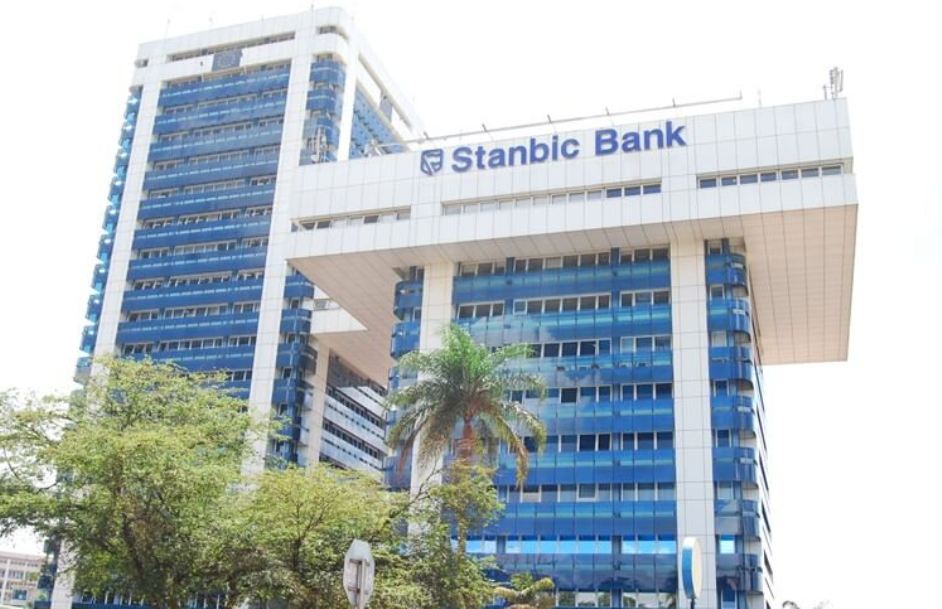Stanbic Bank (U) Ltd is trending albeit for wrong reasons. The bank’s image is at stake, a thing that could affect the entire banking industry considering the fact that Stanbic Bank is Uganda’s biggest bank by assets and market share.
Macdowel Ltd, a Ugandan company is accusing Stanbic Bank of fraudulently selling its mortgaged properties to the bank’s employees.
In a letter dated 23rd September 2020 addressed to Special Investigations Division, Criminal Investigations Directorate, Beatrice Odongo, a Director at Macdowel Ltd says that they mortgaged their properties at plots 1, 3,4, 5 and 6 -Works Close, Luzira to Stanbic Bank (U) Ltd as security for a loan advanced in 2017. The property in question is MaCdowel Apartments that are located in Luzira.
“We have since paid off the entire loan, but the bank has refused to release our titles,” the letter seen by this Business Focus reads in part.
The letter is also copied to the Governor Bank of Uganda and the Head of State Anti-Corruption Unit.
“Initially, the bank’s lawyer (one Andrew Munanura) claimed it sold the property by public auction advertised in the Monitor to take place on 6th December 2019 yet there was in fact no auction,” Odongo writes, adding that their properties were actually grabbed through an insider dealing scheme between the bank and its employees using a front called Myriad Investment Club Ltd.
The letter claims that the shareholders of Myraid and their job designations are; Kenneth Kitungulu-Executive and Head Global Markets-Stanbic, Florence Kaweesa-Global Business Manager-Stanbic Bank, Allan Muhinda-Interest Rates Dealer-Stanbic Bank, Daisy Nitwe-Corporate Treasurer-Sales Dealer-Stanbic Bank, Emmanuel Luteba-Head Products and Analytics –Stanbic, Maureen Kembabazi Katwebaze-Works with Stanbic IBTC Bank, Nigeria and Thaib Lubega-formerly Treasury Manager-Stanbic Bank Uganda.
The letter adds that Kenneth Kitungulu and Daisy Nitwe signed the sale agreement as the buyer’s directors.

“The sale agreement was drawn by the bank’s legal department, colleagues of the buyers, directors, shareholders. It bears the stamp of head PBB Credit Stanbic and Signature of Denis Lugoloobi, senior manager-Credit evaluation signing for the bank,” the letter further reads.
It adds: “Stanbic bank conspired with its employees to grab our properties at a low price of Shs1bn. Stanbic even gave them opportunity and the time to obtain credit from dfcu to finance the purchase. The sale agreement indicates a public auction and the sale was concluded on 25h March 2020 during the COVID-19 lockdown.”
According to the letter, under Article 39 (2) and (3) of the Mortgage Act, sale of mortgaged property by a bank to its employees is a crime punishable by imprisonment of not less than 24 months.
“We are reliably informed that this practice has been ongoing for a long time within the banking industry,” the letter says, adding: “The purpose of this letter is to request your office o investigate this complaint and charge the culprits.”

It remains to be seen how Stanbic Bank top management led by Anne Juuko, the bank’s new Chief Executive Officer, who replaced Patrick Mweheire in February 2020 will handle this scandal that has already adversely affected the bank’s image.
Experts’ Take
In an exclusive interview with Business Focus, Charles Ocici, a former banker and current Executive Director at Enterprise Uganda, says the first basis for a bank’s existence is survival of funded businesses.
He notes that a bank that prides itself in selling properties of its clients after failing to pay back a loan isn’t a bank worth its salt/name.
“What caused the failure of the client to pay back the loan? Was there critical analysis and assessment of the funded business by the bank?” Ocici asks.
He reveals that after a borrower fails to pay back the loan, he (borrower) has the right to bring the buyer of his choice for the mortgaged property.
“Before going into auctioning, the borrower has the first chance to bring a buyer as long as he (the buyer) is able to buy the mortgaged property at the right price that will cover the loan balance,” Ocici says.
He adds: “If the bank takes the auctioning route, it must be seen to be fair.”
Ocici says if Odongo’s claims are true, then this is worrying for Stanbic as it is “outright conflict of interest.”
As an experienced banker, Ocici says the plan to ‘grab’ the client’s property could have been hatched by some individuals within the bank but not the banking institution.
“It’s not possible that the bank designed the pan (to fraudulently acquire the client’s property); an individual did,” he says.
He adds that all the claims by the client will come down to evidence.
Dr. Fred Muhumuza, an analyst and Economics Lecturer at Makerere University says many people don’t understand banking laws.
He adds that auctioning follows a process and wonders whether it was executed professionally. “I wouldn’t want to call it insider dealing but the big question is; did Stanbic Bank staff interfere with the (auctioning) process (for their selfish gains)? Was there conflict of interest?”
He adds that if the claims are true, individuals cited in the scandal should own up the mess.






